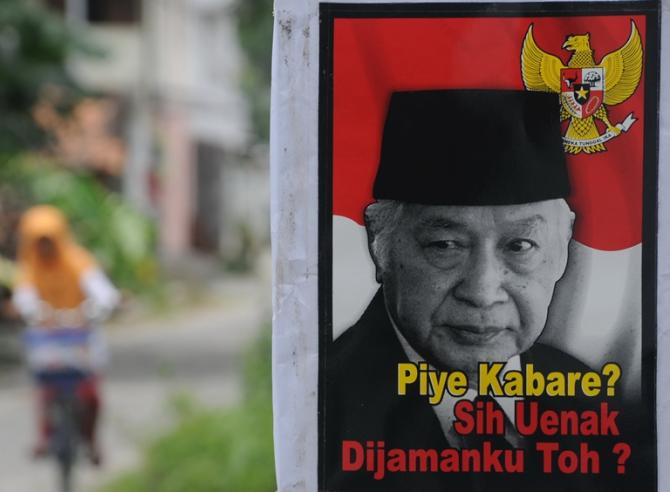
Sixteen years after it suddenly ended, some Indonesians seem to be forgetting what the “New Order” was really like. Nostalgia is not forbidden in a democracy and elected politicians habitually reinvent the past. Yet the rebranding of the late President Soeharto’s 32-year authoritarian regime during the 2014 election cycle as an era of strength and domestic stability demands some fact-checking.
“It seems Indonesia isn’t going anywhere,” lamented Soeharto’s daughter’s Siti Hediati Soeharto, popularly known as Titiek, while on the campaign trail in Yogyakarta for the Golkar party, the political vehicle of her late father. "I want to continue to take the struggle [of my father] forward.”
It is true that reformasi has not brought Indonesia to the Promised Land that many expected when the regime changed. Those who feel left behind remember the New Order as a time when fuel and key staples were cheap, there was security and the government got things done. Outrageous examples of corruption were not allowed to dominate the headlines.
Reformasi has an image problem and lacks a public champion. The New Order is synonymous with one man, but responsibility for reformasi is shared by many. Unlike life under an authoritarian ruler, there is no single person who can take credit for the sweeping political renovation that came after 1998. The four presidents who have led the country since then were each only one member of a relay.
But rather than being on the same team, they were also competitors reluctantly handing on the baton to an opponent. A race started by BJ Habibie as a sprint has transformed into a slow walk as President Susilo Bambang Yudhoyono prepares to leave office in October. In between, Abdurrahman Wahid and Megawati Soekarnoputri each stumbled along at their own pace. Caught up in the complex task of governing a complicated nation, demonstrating the high cost of the New Order’s repression and violence was a lower priority. Some have been more focused on promoting their limited legacies than critiquing the period that preceded them.







 resized.png)
